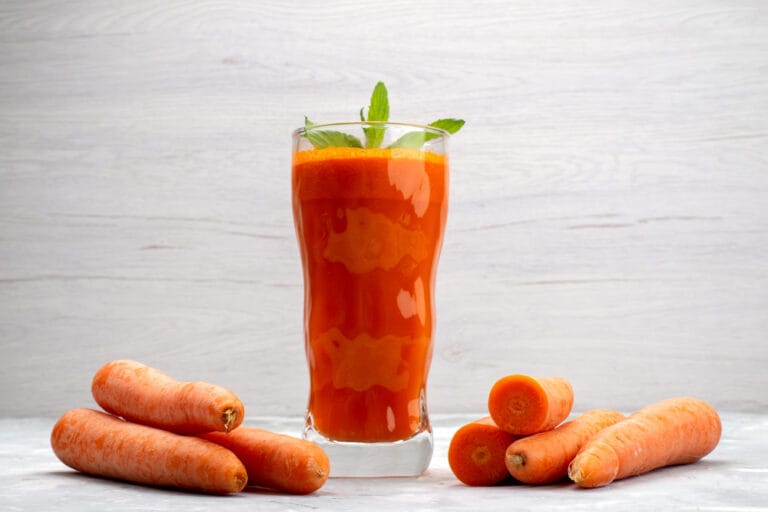FREE SHIPPING OVER $50
Kidney Stone Nightmare? Avoid These 10 Foods & Eat These 10 to Never Get Them Again

If you’ve ever experienced a kidney stone, you know it’s a special kind of agony. Often described as one of the most excruciating pains a person can endure, a kidney stone nightmare is something no one wants to repeat. These hard, crystalline deposits form in your kidneys and can cause intense pain when they try to pass through your urinary tract.
The good news? While some factors like genetics play a role, your diet is a huge player in the formation of kidney stones. This means you have powerful tools at your disposal to take control and actively participate in kidney stone prevention. In this article, we’re going to pull back the curtain on the dietary culprits and heroes. We’ll reveal 10 foods that can trigger kidney stones and, just as importantly, 10 foods that actively help prevent them.
The Unwanted Guests: What Are Kidney Stones Anyway?
Before we dive into the food list, let’s quickly understand these little troublemakers. Kidney stones form when certain minerals and salts in your urine become highly concentrated and crystallize. Think of it like making rock candy – too much sugar in too little water, and you get crystals.
There are several types of kidney stones, but the most common one, accounting for about 80% of cases, is the calcium oxalate stone. This type forms when calcium and oxalate, a natural substance found in many foods, bind together in the urine. Other types include:
- Uric Acid Stones: Often linked to high protein intake and dehydration.
- Struvite Stones: Usually associated with urinary tract infections.
- Cystine Stones: A rarer type, often hereditary.
While this article’s dietary advice is generally beneficial for kidney stone prevention across the board, it particularly targets the common calcium oxalate stones and provides guidance for uric acid stones. The excruciating pain comes when these stones move from the kidney into the narrow ureter, blocking urine flow. Clearly, avoiding this pain is the ultimate goal!
The Big No-Nos: 10 Foods That Can Trigger Kidney Stones
To truly never get them again, you need to know your enemy. These 10 foods that can trigger kidney stones are common culprits, often because of their high oxalate content, sodium levels, or impact on urine chemistry.
- Spinach: While incredibly healthy otherwise, spinach is notoriously high in oxalate. For those prone to calcium oxalate stones, consuming large amounts can contribute to stone formation.
- Rhubarb: Similar to spinach, rhubarb is another oxalate powerhouse. If you love rhubarb pies, consider moderating your intake, especially if you have a history of oxalate stones.
- Almonds and Cashews (in excess): These popular nuts contain relatively high levels of oxalate. While healthy in moderation, consuming large quantities regularly might be a concern for stone formers.
- Chocolate: Sadly, for chocolate lovers, it’s also high in oxalate. Enjoy it sparingly if you’re battling kidney stones.
- Sweet Potatoes (in large amounts): While a nutritious vegetable, sweet potatoes contain more oxalate than regular potatoes. If you’re highly prone to stones, moderate your portion sizes.
- Processed Meats (Sausage, Bacon, Deli Meats): These often contain high levels of sodium and animal protein. Excessive sodium increases calcium in your urine, making stones more likely, and high animal protein can increase uric acid.
- Salty Foods (Excess Sodium): Beyond processed meats, anything excessively salty – like many packaged snacks, fast food, and canned soups – contributes to higher calcium levels in your urine, a direct factor in stone formation. Kidney stone prevention heavily relies on managing sodium intake.
- Sugary Drinks and Soda: Sugary sodas, especially those with phosphoric acid, and other sweetened beverages can increase the risk of kidney stones. The fructose in these drinks might increase calcium, oxalate, and uric acid in urine.
- Iced Tea (Black Tea): A popular beverage, especially in warmer climates, black tea is relatively high in oxalate. Drinking large volumes of iced tea throughout the day can significantly contribute to oxalate load.
- Red Meat (Excess Animal Protein): Consuming excessive amounts of red meat can lead to higher levels of uric acid in your urine and reduce citrate, a natural stone inhibitor. This primarily impacts uric acid stone formers but can contribute to other stone types as well.
Your Secret Weapon: 10 Foods That Help Prevent Kidney Stones
Now for the good news! You have a powerful arsenal of foods that help prevent kidney stones. These foods work by diluting urine, inhibiting crystal formation, or balancing minerals.
- Water (The Ultimate Stone Fighter): We can’t stress this enough. Drinking plenty of water is the single most important thing you can do for kidney stone prevention. It dilutes the stone-forming substances in your urine, making crystallization less likely. Aim for 8-12 glasses (2-3 liters) a day, or enough to keep your urine pale yellow.
- Lemons and Limes (Citrus Powerhouses): These fruits are rich in citrate, a natural inhibitor of kidney stone formation. Citrate binds with calcium in your urine, preventing it from forming stones, and can even break up small existing stones. Adding lemon or lime to your water daily is a fantastic strategy.
- Oranges: Another excellent source of citrate, oranges are a delicious way to boost your stone-fighting compounds.
- Cantaloupe and Honeydew: These melons are not only hydrating but also contain potassium, which helps balance sodium levels and promotes urine flow.
- Calcium-Rich Foods (Dairy, Fortified Milk/Alternatives): This is a crucial point! Many people mistakenly avoid calcium, thinking it contributes to calcium stones. However, dietary calcium from food binds with oxalate in the gut before it can reach the kidneys, preventing stone formation. Aim for adequate calcium intake through sources like milk, yogurt, cheese, or fortified plant-based milks.
- Broccoli and Cauliflower: These cruciferous vegetables are low in oxalate and packed with nutrients. They’re great additions to a stone-prevention diet.
- Whole Grains (in moderation): Foods like oatmeal, whole wheat bread, and brown rice provide fiber and are generally lower in oxalate compared to some other plant sources. They contribute to a balanced diet that supports overall kidney health.
- Fish (e.g., Salmon, Tuna): While animal protein needs to be moderated, moderate consumption of fish can be a good source of protein without the high purine load of red meat. Plus, some fatty fish provide beneficial omega-3s.
- Bananas: A great source of potassium, which helps maintain fluid balance and can counteract some of the negative effects of sodium, contributing to a healthier urine environment.
- Berries (Strawberries, Blueberries): These delicious fruits are relatively low in oxalate and offer hydrating properties and antioxidants, making them excellent choices for kidney stone prevention.
Beyond the Plate: Lifestyle Habits for Stone-Free Living
While focusing on what you avoid and what you eat is paramount, remember that diet is just one piece of the puzzle for truly conquering the kidney stone nightmare and aiming to never get them again.
- Hydration is Non-Negotiable: We listed water as number one for a reason. Make it your primary beverage. Keep a water bottle handy and sip throughout the day. Pale yellow urine is your goal.
- Manage Overall Sodium Intake: Read food labels! Sodium hides everywhere. Aim for less than 2,300 mg of sodium per day (or even less if recommended by your doctor). This helps prevent calcium from leaking into your urine.
- Moderate Animal Protein: For all stone types, a balanced intake of animal protein (meat, poultry, fish, eggs) is key. Excessive amounts can increase stone-forming substances in urine.
- Maintain a Healthy Weight: Obesity can increase the risk of kidney stones. Working towards and maintaining a healthy weight supports overall kidney health.
- Consult Your Healthcare Professional: This cannot be stressed enough. If you’ve had a kidney stone, your doctor or a registered dietitian specializing in renal nutrition can perform tests to determine your stone type and provide personalized dietary recommendations.
Conclusion
The kidney stone nightmare is a painful reality for many, but it doesn’t have to be your future. By consciously choosing what you avoid and what you eat, you gain significant control over your risk factors. Remember, the journey to being stone-free involves consistent effort and smart nutrition choices.
Empower yourself with this knowledge, hydrate diligently, and embrace a diet rich in stone-fighting foods. With these strategies, and ongoing guidance from your healthcare professional, you can dramatically reduce your risk and work towards truly being free from the pain of kidney stones for good.
Related Articles
- Heart Attack Risk Soars: Never Do THIS After a High-Sodium Meal, Say Cardiologists
- David Bars for Rapid Fat Loss & Muscle? The Shocking Truth Revealed!
- Constipated? These 5 Drinks Are Your Instant Bathroom Pass (Seriously!)
- Stop Cravings Cold! The 10 “Clean” Protein Bars That Actually Keep You Full (Trainer Approved!)
- 10 Protein Bars You Should Steer Clear Of—Don’t Waste Your Money!







